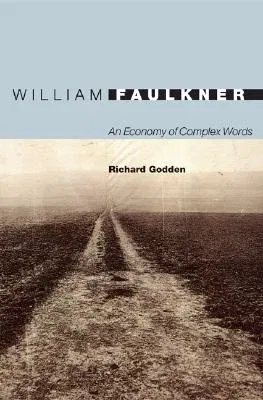Richard Godden
(Author)William Faulkner: An Economy of Complex WordsHardcover, 5 August 2007

Qty
1
Turbo
Ships in 2 - 3 days
In Stock
Free Delivery
Cash on Delivery
15 Days
Free Returns
Secure Checkout

Part of Series
20/21
Print Length
280 pages
Language
English
Publisher
Princeton University Press
Date Published
5 Aug 2007
ISBN-10
069113071X
ISBN-13
9780691130712
Description
Product Details
Author:
Book Format:
Hardcover
Country of Origin:
US
Date Published:
5 August 2007
Dimensions:
23.5 x
16.38 x
2.16 cm
ISBN-10:
069113071X
ISBN-13:
9780691130712
Language:
English
Location:
Princeton
Pages:
280
Publisher:
Series:
Weight:
508.02 gm